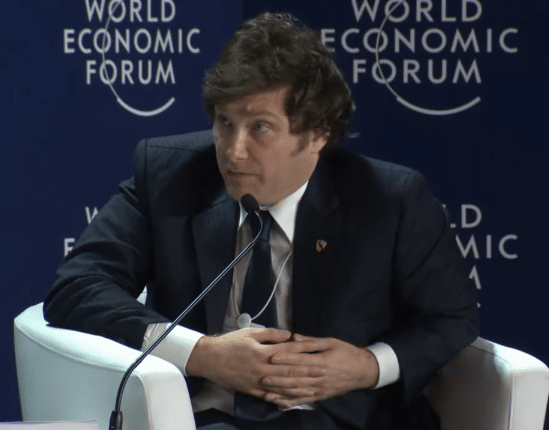Why Javier Milei's Victory is Bad News for Argentina (and for Bitcoin)
Javier Milei, elected in the midst of an economic turmoil in Argentina, claims to embody anarcho-capitalism and proclaims himself a bitcoin enthusiast. However, behind this facade lies a figure with radical ideas, far removed from the standards of freedom dear to Satoshi Nakamoto. His victory raises concerns, not only for Argentinians but also for the image of Bitcoin, associated with an aggressive discourse and a dangerous economic program.

Javier Milei, a remedy worse than the poison?
Argentina is experiencing an unprecedented economic crisis. Struck by the devaluation of its currency and chronic instability, the population suffers. They must contend with inflation of 140% over a year, with a poverty rate reaching 40%. It is in this context that Argentinians elected Javier Milei, an economist with an extremely radical vision. His program? An unprecedented cut in public services, with the promise of turning the country around. A reaction to the previous Peronist government of Sergio Mass, deemed responsible for the country’s disastrous situation. But if Javier Milei has recently become known to the crypto community, it is notably for having mentioned bitcoin in his political program.
A pseudo-anarchist
Nonetheless, Javier Milei’s recent election victory is nothing to rejoice about, neither for Argentinians nor for the development of Bitcoin. Although Milei claims to be an anarcho-capitalist, he is in reality a libertarian, convinced that subjecting a weakened population to the sole law of the market will suffice to reverse the trend. And on the scale of a country, this doctrine can be particularly dangerous.
Thus, some “crypto-anarchists” are mistaken when they think that Javier Milei embraces values of freedom. Anti-abortion, he is fiercely opposed to women’s right to control their bodies as they see fit. Close to far-right ideologies, he even shows his sympathy for the Spanish political party Vox.
More than that, Milei wishes for a rapid dollarization of the country, by outright abolishing the national central bank. However, relying on the FED, the US central bank, seems far from a policy in favor of sovereignty. Instead, he seems to want to hand over the keys of his monetary policy to a foreign power. Especially when the United States is not exactly known for its benevolence towards South America.
The new Argentine president is far from being “anarcho-capitalist” as he claims. Quite the contrary, he defends a very traditional policy but with an unprecedented radicality. Yanis Varoufakis, former Greek Finance Minister, on X, does not hesitate to compare him to Jorge Rafael Videla. This dictator is known for having led the “Dirty War” and having reigned terror on Argentina in the 1970s:
Milei is a new Videla disguised as a libertarian, determined to put an end to the possibility of Argentine democratic sovereignty.

Bad publicity for bitcoin
But beyond his dangerous program, it is his discourse that causes damage. Associated with bitcoin for having mentioned it occasionally, Javier Milei’s image is particularly disastrous. His personality raises concerns, as he multiplies controversial interventions, adopting an especially aggressive posture. Some have indeed seen signs of dementia in him. After all, Bitcoin belongs to no one, and even less so to an ambitious reactionary. Did he even take the time to seriously study bitcoin? It’s doubtful. And there is a legitimate fear that he only mentioned it for electoral purposes.
Maximize your Cointribune experience with our "Read to Earn" program! For every article you read, earn points and access exclusive rewards. Sign up now and start earning benefits.

Fascinated by the history of Bitcoin and the cypherpunk movement, I think that citizens must reinvest in the field of currency. My goal? To democratize and make visible the potential of blockchain and cryptocurrencies.
The views, thoughts, and opinions expressed in this article belong solely to the author, and should not be taken as investment advice. Do your own research before taking any investment decisions.